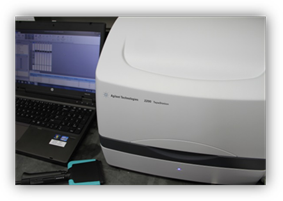HEMOCHROMATOSIS

Hemochromatosis is a disorder of iron metabolism resulting in excessive iron storage leading to increased skin pigmentation, arthritis, hypogonadism, diabetes mellitus, heart arrhythmias/failure, cirrhosis and liver carcinoma. Hemochromatosis is an iron overload disorder caused by excess iron being stored in the body that can be inherited or acquired. Hereditary hemochromatosis (HH) is a genetic disorder resulting in excessive absorption and storage of dietary iron, leading to progressive iron accumulation in tissues and resulting in organ damage.
CLINICAL INDICATIONS FOR TESTING:
- Arthralgias
- Skin pigmentation
- Diabetes
- Cardiac symptoms
- Osteopenia after other causes of ferritin increase are ruled out (eg, alcohol abuse, acute/chronic hepatitis B or hepatitis C, metabolic syndrome)
- Adult Caucasian men of North European ancestry >25 years
- First-degree relatives of patients with disease
- All patients with evidence of liver disease without obvious etiology
- First-degree relatives of patients with disease
C282Y
- Variable penetrance – most patients will have biochemical abnormalities; up to 2% will have characteristic clinical endpoints
- Severe disease, 11% carrier frequency in Caucasians
H63D
- Compound heterozygosity (C282Y/H63D) – 5% of cases, Milder form of the disease
- 25% carrier frequency in Caucasians
SAMPLE REQUIREMENTS: |
Blood: 3-5 ml purple top (EDTA) vacutainer of whole blood inverted several times to mix. Forward within 48 hours at room temperature. Please consult the lab for tissue or body fluid submission. |
Amniotic Fluid: 10-15 ml amniotic fluid from 14th-17th week of gestation or one confluent T25 flask of cultured cells. Send specimen refrigerated, but not frozen (do not ship on dry ice). Please use an overnight courier service. |
Test Method: RFLP |
Turn around time: 5-7 days |
References:
- Comen, E., etc. Relative contributions of BRCA1 and BRCA2 mutations to “triple-negative” breast cancer in Ashkenazi Women. Breast Cancer Res Treat. (2011)
- Lavie, O., etc. Double heterozygosity in the BRCA1 and BRCA2 genes in the Jewish population. Ann Oncol (2011) Apr;22(4):864-6.
- Rennert, G., etc. Clinical outcomes of Breast cancer in carriers of BRCA1 and BRCA2 mutations. N Engl J Med (2007), 357:115-123.

 Institute of Genomic Medicine
Institute of Genomic Medicine